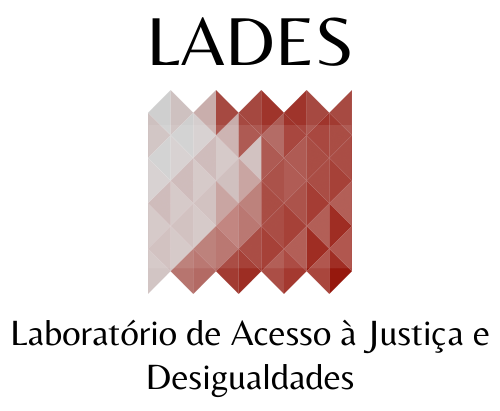Quem é responsável pelas algas? Os Limites da Imaginação e a má alocação de mão de obra
DOI:
https://doi.org/10.26512/abya-yala.v7i1.48587Palavras-chave:
trabalho, turismo, ambienteResumo
Desde 2011, o influxo de grandes quantidades de algas marinhas em todo o Caribe gerou graves perturbações ambientais e econômicas para as comunidades locais dependentes do turismo. Os cientistas acreditam que as algas marinhas são causadas pelo aquecimento das águas oceânicas e pelo escoamento excessivo de nutrientes do Brasil. Limitadas em sua capacidade de abordar as fontes do crescimento excessivo da usina, as comunidades investiram centenas de milhões de dólares e contrataram milhares de trabalhadores para mitigar os efeitos das algas marinhas. Neste artigo, examino como os moradores de Playa del Carmen lidaram inicialmente com grandes florescências de algas marinhas que começaram a inundar suas praias em 2018. Enquanto a comunidade lutava com a planta, os moradores começaram a se perguntar “quem é o responsável pelas algas?” A partir de três encontros diferentes em que diferentes moradores tentaram responder a essas perguntas, demonstro a capacidade imaginativa expansiva dos habitantes locais. O problema das algas continua, afirmo, não porque falte imaginação, mas porque o trabalho é mal alocado.
Downloads
Referências
ANDERSON, Elizabeth. Private Government: How Employers Rule Our Lives (and why we don't talk about it). Princeton: Princeton University Press, 2014.
BESSIRE, Lucas, and David BOND.. "Ontological anthropology and the deferral of critique." American Ethnologist, v. 41, n.3, pp. 440-456, 2014
BERLANT, Lauren Gail. Cruel Optimism. Durham: Duke University Press, 2011.
BOLETÍN UNAM. “Para este 2019, se espera llegada masiva de sargazo al Caribe Mexicano”. Boletín UNAM -DGCS-027, 14 de enero, 2019. Available at: https://www.dgcs.unam.mx/boletin/bdboletin/2019_027.html?fbclid=IwAR0D_sCbaqZA2CrhY9PIjujhgdcnNZDepj_58DgVEx9Fs65wfQtsh40fB0
BONILLA, Yarimar. Non-Sovereign Futures. French Caribbean Politics in the Wake of Disenchantment, Chicago: University of Chicago Press, 2015.
CASTELLANOS, M. Bianet. A Return To Servitude: Maya Migration And The Tourist Trade In Cancún. Minneapolis: University of Minnesota Press, 2010.
––––––. Indigenous Dispossession: Housing and Maya Indebtedness in Mexico. Stanford: Stanford University Press, 2020.
CHAO, Sophie, and Dion ENARI.. "Decolonising Climate Change: A Call for Beyond-Human Imaginaries and Knowledge Generation", eTropic: electronic journal of studies in the Tropics, v. 20, n. 2, pp. 32-54, 2021.
CLANCY, Michael. "Mexican Tourism: Export Growth and Structural Change Since 1970." Latin American Research Review, v. 36, n. 1, pp.128-150, 2001.
CÓRDOBA AZCÁRATE, Matilde. Stuck with Tourism: Space, Power, and Labor in Contemporary Yucatan. University of California Press, 2020.
COLLINS, Patricia Hill. Intersectionality as Critical Social Theory. Durham: Duke University Press, 2019
DE LA CADENA, Marisol. "Indigenous cosmopolitics in the Andes: Conceptual reflections beyond “politics”." Cultural anthropology, v. 25, n. 2, pp. 334-370, 2010.
DE LA CADENA, Maria and Mario BLASER. A World of Many Worlds. Durham: Duke University Press, 2018
DELGADO WISE, Raúl and James M. CYPHER. “The Strategic Role of Mexican Labor under NAFTA: Critical Perspectives on Current Economic Integration.” The ANNALS of the American Academy of Political and Social Science, v. 610, n. 1, pp. 119–42, 2007.
ESPINOSA, Luis Antonio and Juan José, LI NG. “El Riesgo de Sargazo para la economía y turismo Quintana Roo y México.” BBVA research, n. 20/02, February, 2020. Available at: https://www.bbvaresearch.com/wp-content/uploads/2020/02/Riesgo_Sargazo_Big_Data.pdf.
FERGUSON, James. Give a Man a Fish: Reflections On the New Politics of Distribution. Durham: Duke University Press, 2015.
GOBIERNO DE QUINTANA ROO. 3er Informe de gobierno, Carlos Joaquín, Gobierno de Quintana Roo, México, 2019
GREENHOUSE, Carol. 2011. "Durkheim and Law: Divided readings over Division of Labor." Annual Review of Law and Social Science, v. 7, pp. 165-185.
HARAWAY, Donna. “Anthropocene, Capitalocene, Plantationocene, Chthulucene: Making Kin.” Environmental Humanities, v. 6, n. 1, pp. 159–65, 2015
HOBSBAWM, Eric. “Lenin and the Aristocracy of Labor.” Monthly Review. December 1, 2012. https://monthlyreview.org/2012/12/01/lenin-and-the-aristocracy-of-labor/.
HOOKS, Bell. Feminism Is for Everybody: Passionate Politics. London: Pluto Press, 2000.
HOWARD, Penny McCall. Environment, Labor, and Capitalism at sea: Working the Ground in Scotland. Manchester: Manchester University Press. 2017
––––––2018. "The Anthropology of Human-Environment Relations: Materialism with and Without Marxism." Focaal , n. 82, pp. 64-79, 2018.
LAZAR, Sian. The Social Life of Politics: Ethics, Kinship, and Union Activism in Argentina. Stanford: Stanford University Press. 2017.
LAZRUS, Heather. "Sea change: Island Communities and Climate Change." Annual Review of Anthropology, v. 41, pp. 285-301, 2012.
MORRIS, Courtney Desiree. To Defend This Sunrise: Black Women’s Activism and the Authoritarian Turn in Nicaragua, USA: Rutgers University Press, 2023.
PÉREZ ORTEGA, Rodrigo, Nelly TOCHE and Myriam VIDAL VALERO. “‘Es un desastre ecológico’: la crisis del sargazo en México.” New York Times, 19 of August 2019. Available at: https://www.nytimes.com/es/2019/08/16/espanol/america-latina/sargazo-playas-mexico.html.
PETRYNA, Adriana. "Wildfires at the edges of science: horizoning work amid runaway change." Cultural Anthropology, v. 33, n. 4, pp. 570-595, 2018.
PICARD, David. Tourism, Magic and Modernity: Cultivating the Human Garden. New York: Berghahn Books, 2011.
RE CRUZ, Alicia. "Milpa as an ideological weapon: Tourism and Maya migration to Cancun." Ethnohistory, v. 50, n. 3, pp. 489-502, 2003.
RIVERA MAYA NEWS. “Cancun, Riviera Maya ends tourist season exceeding pre-pandemic figures.” September 6, 2021. Available at: https://www.riviera-maya-news.com/cancun-riviera-maya-ends-tourist-season-exceeding-pre-pandemic-figures/2021.html?cn-reloaded=1.
ROTHBERG, Michael. The Implicated Subject: Beyond Victims and Perpetrators. Stanford: Stanford University Press, 2019.
SALAZAR, Noel B. Envisioning Eden: Mobilizing Imaginaries in Tourism and Beyond. New York & Oxford: Berghahn Books, 2013.
SANTOS, Alvaro. 2009. "Labor flexibility, legal reform, and economic development." Virginia Journal of International Law. V.50, n. 1, pp 43-106, 2009.
SEMARNAT. “Entrega Gobierno de la República recursos para limpieza y retiro de sargazo en Qroo”. Secretaría del Medio Ambiente y Recursos Naturales [SEMARNAT], México, 2015. Available at: https://www.gob.mx/semarnat/prensa/entregagobierno-de-la-republica-recursos-para-limpieza-y-retiro-de-sargazo-en-qroo
––––––2018. “Avances y logros. Sobre arribazón de sargazo en las playas de Quintana Roo en el verano de 2018”. Secretaría del Medio Ambiente y Recursos Naturales [SEMARNAT], México, Available at: https://www.gob.mx/semarnat/acciones-y-programas/avances-y-logros-sargazo
SMITH, Christen A. Afro-Paradise: Blackness, Violence, and Performance in Brazil. Urbana: University of Illinois Press, 2016.
TAMBORINI, Christopher R. "Work, Wages and Gender in Export‐Oriented Cities: Global Assembly versus International Tourism in Mexico". Bulletin of Latin American Research, v. 26, n.1, pp. 24-49, 2007.
TÁÍWÒ, Olúfẹ́mi O. Elite Capture: How the Powerful Took Over Identity Politics (And Everything Else). Chicago: Haymarket Books, 2022
WANG, Mengqiu, Chuanmin HU, Brian B. BARNES, Gary MITCHUM, Brian LAPOINTE, and Joseph P. MONTOYA. "The great Atlantic sargassum belt", Science, v. 365, n. 6448, pp. 83-87, 2019.
WEEKS, Kathi. The Problem with Work: Feminism, Marxism, Antiwork Politics, and Postwork Imaginaries. Durham: Duke University Press, 2011.
WHITINGTON, Jerome. "What does climate change demand of anthropology". Political and Legal Anthropology Review, v. 39, n. 1, pp. 7-15, 2016.
YEH, Rihan. Passing: Two publics in a Mexican border city. Chicago: University of Chicago Press, 2018.
YOUNG, Iris Marion. Responsibility for Justice. Oxford: Oxford University Press, 2011.
Downloads
Publicado
Como Citar
Edição
Seção
Licença
Copyright (c) 2023 Abya-yala: Revista sobre Acesso à Justiça e Direitos nas Américas

Este trabalho está licenciado sob uma licença Creative Commons Attribution-NonCommercial 4.0 International License.
O envio de contribuições para Abya Yala implica a cessão de direitos autorais e de publicação à Revista, observando a Atribuição-NãoComercial 4.0 Internacional (CC BY-NC 4.0) adotada.
O conteúdo dos textos submetidos à revista e por ela publicados serão de inteira responsabilidade de seus respectivos autores.
Copyright: https://creativecommons.org/licenses/by-nc/4.0/deed.pt_BR





 Este trabalho está licenciado como Atribuição Não Comercial 4.0 Internacional (CC BY-NC 4.0)
Este trabalho está licenciado como Atribuição Não Comercial 4.0 Internacional (CC BY-NC 4.0) 








